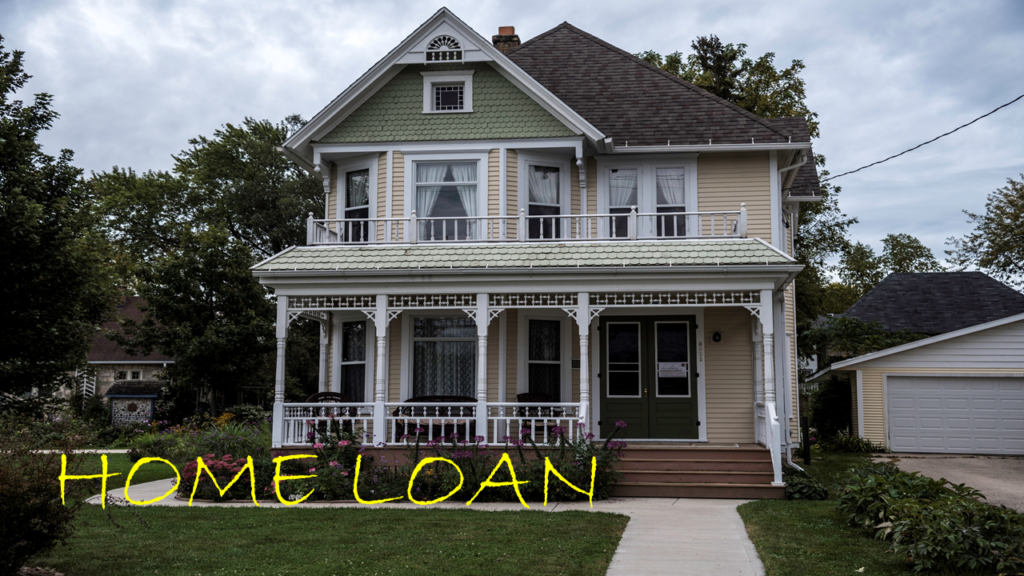
What is a Home Loan or Housing Loan?
The term home loan or house loan simply refers to money borrowed from a financial institution or a bank for the purpose of purchasing a home. There are both adjustable and fixed rates on home loans. The purpose of obtaining a home loan is either to buy a house/flat or plot of land for building a house. Additionally, we can use a home loan for renovation, extension or repairing of an existing house.
Mortgages are loans provided to people who are acquiring or purchasing real estate. So that they could be able to acquire funds to purchase the property. Existing property owners can use it to raise funds. Thus, they place a lien on the property and raise funds. We call this a home loan. Most countries finance the purchase of a home with a mortgage loan. Most people do not have enough savings or liquid funds to purchase a property outright. Mortgage markets have grown strongly in countries with the highest demand for homeownership.
Mortgage Origination:
In order to get a mortgage loan, the property of the borrower serves as a security for the loan. We refer to this process as mortgage origination. When a borrower defaults on a loan or breaches its terms, lenders have the legal right to retake and sell the property. In the Middle Ages, the term mortgage referred to a pledge which expires (dies). Here, the outcome is foreclosure, which results either with the seizure of the property or in fulfilling the obligation. The traditional definition of a mortgage is “a loan for which the borrower provides collateral and receives funds”.
Who is the Lender:
Whether the loan is for a home or commercial property, either an individual or a business can take out a home loan. Depending on the country concerned, a lender will normally be a financial institution. These financial institutions can be banks, credit unions, societies, etc. The lender can arrange the loan either directly or indirectly through intermediaries.
Features of the loan:
The size, term, interest rate, repayment method, and other characteristics of mortgage loans can vary widely. The loan depends mostly on the lender who gives the money and the borrower who borrows the money. The lender determines the loan’s terms and conditions.
Lien rights on the Collateral Security:
The lender has priority over any other creditors of the borrower over the secured property. Thus, if a borrower becomes bankrupt, the mortgage lender is first repaid from the sale of the secured property. Next, the other creditors will receive the money they owe. Thus, the lender keeps the property as a security till the repayment of the loan. This means the original property documents will be with the lender. The lender will act as the owner of the property till the complete repayment of the loan happens.
Funding of Mortgages:
The funding of mortgages can be obtained through the banking sector or through the capital markets through the process of securitization. It is through this that they can convert mortgage pools into fungible bonds. Investors then purchase the bonds, which are issued in small denominations.
Interest Rate:
Depending on the borrower’s needs, interest rates are either fixed or variable. A hybrid rate of interest is thus possible, where a part of the interest rate is either fixed or floating.
History of the Disbursement of the first Home Loan:
Disbursement of the first home loan took place some 44 years ago. HDFC, which was the first organized player in the Indian home loan market, began by lending to Mr. D B Remedios. Remedios took a loan of Rs. 30000 in 1978 with a fixed interest rate of 10.5%. He spent Rs.70,000 on building a house in Mumbai’s Malad neighborhood. This shows that the loan he took was less than half of the total cost of the house. As of today, most borrowers require a minimum loan amount of 65-80 percent of the purchase price. Despite the cap prescribed by the housing finance regulator, National Housing Bank (NHB), and the Reserve Bank of India (RBI), there are still individuals who want more.
Getting a Loan:
Getting a loan has become much easier these days. Nowadays, it is easier to get a Home Loan from the comfort of one’s home as opposed to in the past. It is hardly necessary to go to the bank premises or stand in long queues. The advancement of technology and the internet has made all these things possible.
A home loan is also eligible for certain tax benefits under Section 80EE of the Income Tax Act. However, the income tax deduction is only available to first-time home buyers.
[WPSM_AC id=233]
Below are some links that may be of interest to you
[wptb id=752]




